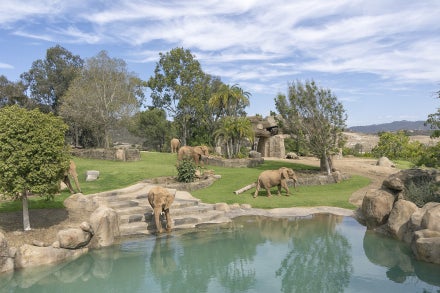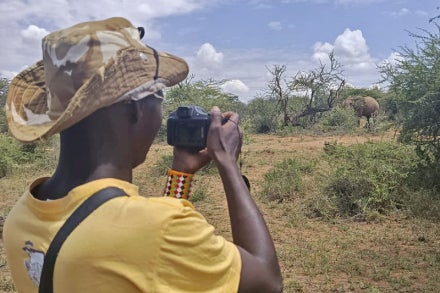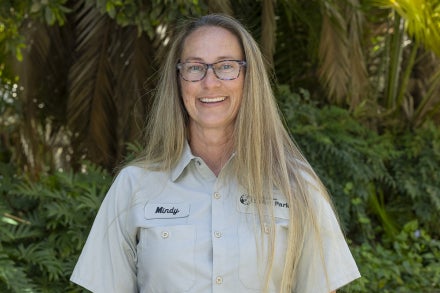
Those of you who have been watching our Burrowing Owl Cam may have noticed a change in the number of eggs in the burrow. This female laid her first egg on April 2. Unfortunately, she broke that egg the next day, so keepers gave her an unbreakable "dummy" (fake) egg to sit upon. She laid eight more eggs in the burrow—and did not break any more.
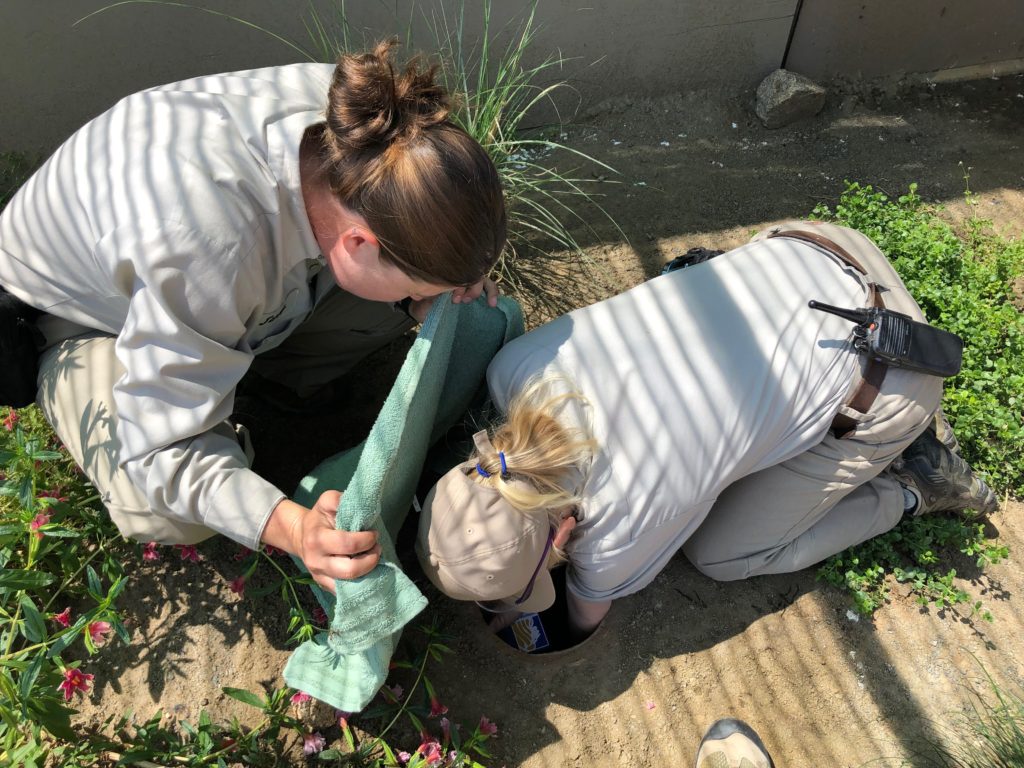
On Tuesday, April 23r, keeper staff candled the eggs inside the burrow. Candling is how we determine if an egg is fertile and progressing normally. We hold a bright light up to one end of the egg, and the light shining through allows us to see if there is an embryo and/or blood vessels inside. Candling is done very quickly and is not harmful to the eggs. Lucky for us, the combination of white-shelled eggs and a dark burrow make burrowing owl eggs very easy to see through. We are very excited to report that they have seven viable fertile eggs! We removed the dummy egg and one egg that was a very early embryonic death. We could be expecting hatches as early as the beginning of May.
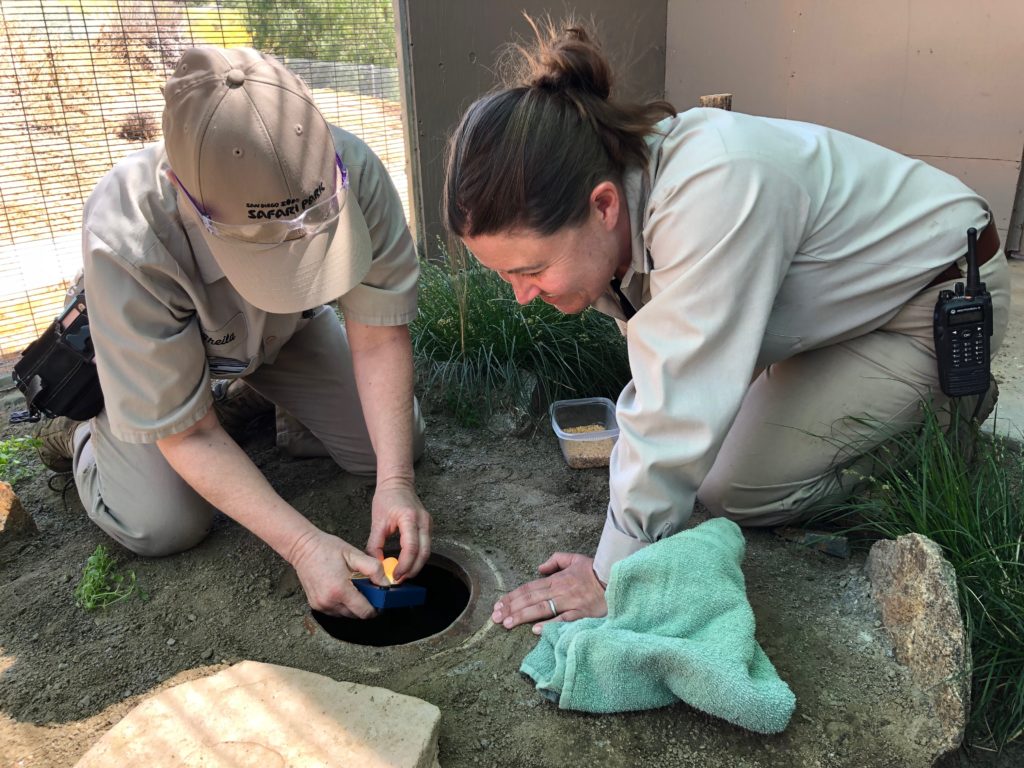
One interesting note about burrowing owl nesting is that native owls will often bring mammal dung (usually cow) to their burrow. There are several reasons researchers believe they do this. One is to attract insects to their burrow to provide food for the growing chicks. Another reason may be to help control the humidity inside their burrow. Keepers put a couple piles of cow dung inside the owl enclosure just before the beginning of the breeding season. When we candled the eggs, we noticed the nice soft material you can see surrounding the eggs is actually cow dung!
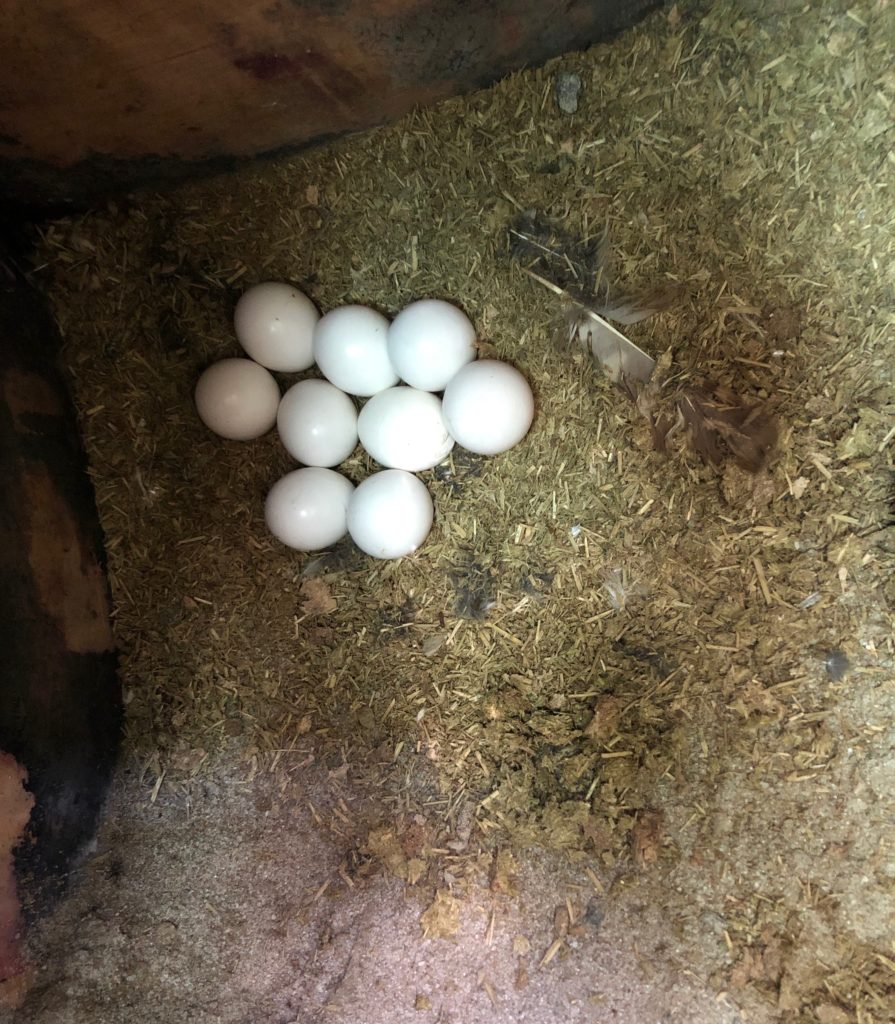
Some of the other items the owls like to “decorate” their burrow with are leftover mouse parts from their diet and pellets (casts made up of indigestible parts of their diet, such as bones and insect shells). These items also attract insects to the burrow, so do not be alarmed if you start to see more insects inside the burrow—this is a good thing for the future owl chicks.
Kristina Heston is an animal care supervisor at the San Diego Zoo Safari Park.


